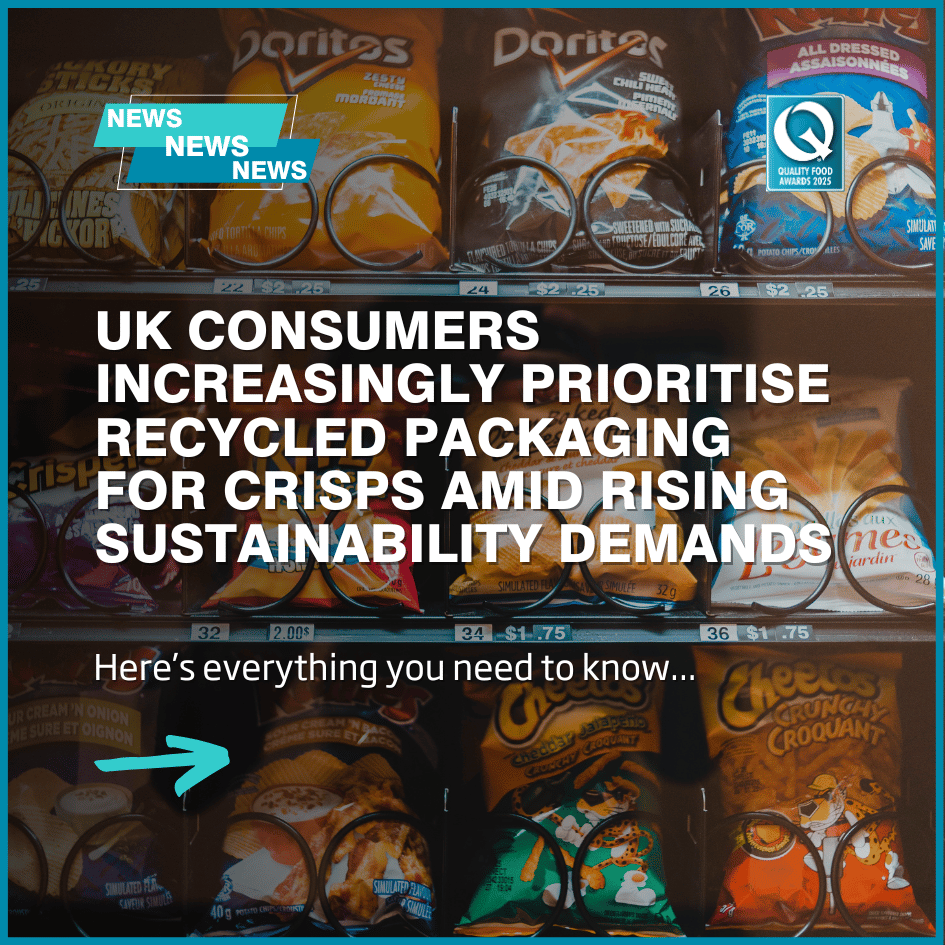
UK consumers increasingly prioritise recycled packaging for crisps amid rising sustainability demands
A recent survey reveals that one in three UK consumers now considers the environmental impact of crisp packaging, with younger shoppers leading the shift towards recycled materials and clear eco-friendly claims, driven by a rising demand for sustainable packaging solutions despite economic pressures.
A recent survey commissioned by packaging company Amcor reveals that one in three UK consumers now consider the environmental impact of crisp packaging when making a purchase. The study, conducted in August and September 2025 by Walnut Omnibus with a nationally representative sample of 2,005 UK adults, highlights that 30% of adults take sustainability into account when buying crisps. This consideration is notably higher among younger shoppers, with 43% of those aged 18 to 44 factoring in environmental concerns compared to just 20% of consumers over 45.
These insights come amid the launch of new packaging by Amcor in collaboration with British crisp brand Burts, which utilizes 55% post-consumer recycled materials through Amcor’s AmFiniti™ solution. The packaging is ISCC-certified under a mass balance approach, ensuring it meets food-grade safety standards while maintaining product integrity. According to Sally Liggins, Key Account Manager for Snacks & Confectionery EMEA at Amcor, switching to recycled content is both impactful and strategically sound, resonating with eco-conscious consumers and fostering real sustainability progress.
The research also reveals that 28% of respondents regard the environmental impact of packaging as equally important as taste, and 40% would be more likely to purchase crisps if the packaging was made from recycled materials. This trend underscores the rising consumer demand for sustainable packaging solutions in the snacks sector.
However, broader European data presents a nuanced perspective. A 2025 McKinsey survey on European consumer packaging perceptions indicates that while environmental impact remains a consideration, it ranks fifth in importance behind quality, price, food safety, and shelf life. In the UK, 42% of consumers consider environmental impact as 'extremely important' or 'very important' when choosing products, showing a slight decline from 45% in 2023. This suggests that although sustainability influences purchasing decisions, it often remains secondary to other product attributes.
Economic factors are also shaping consumer priorities in the UK. Research by Pro Carton highlights that the ongoing cost-of-living crisis influences demand for sustainable products, with 79% of respondents citing cost of living as their primary concern. Despite this, many consumers exhibit eco-conscious behaviours, such as increased recycling efforts and a preference for environmentally friendly packaging. Over a third have purchased more products in sustainable packaging in the past year, reflecting a cultural shift even amid economic pressures.
Additionally, Amcor’s 2025 European consumer claims report points to the significant role of clear recyclability messaging in consumer decision-making. It notes that 84% of consumers check on-pack disposal instructions and 71% understand 'made with recycled materials' claims. There is also growing favour towards paper-based packaging, with 72% of consumers recognising and using such claims to guide their purchases.
Sustainability in packaging also impacts brand loyalty, as a DS Smith survey found that 26% of UK online shoppers would stop ordering from brands that use excessive packaging, and 22% would cease purchasing if the packaging was not recyclable or hard to recycle. Preference for paper or cardboard packaging remains strong, with 80% favouring such materials and 21% willing to pay a premium for plastic-free options.
Finally, consumer concern extends beyond crisps alone. A Soil Association Certification study from the Organic Fresh Produce Forum found that 56% of shoppers worry about the environmental impact of food packaging in general. Expectations are particularly high for organic produce, with over half anticipating low or zero environmental impact packaging, and 42% expecting more sustainable packaging for organic products compared to conventional ones.
Taken together, these findings illustrate the complex and evolving landscape of consumer attitudes towards packaging sustainability in the UK. For brands like Burts and others, investing in recycled content and clear, credible sustainability claims appear essential not only to meet consumer expectations but also to build long-term loyalty amidst growing environmental awareness.
